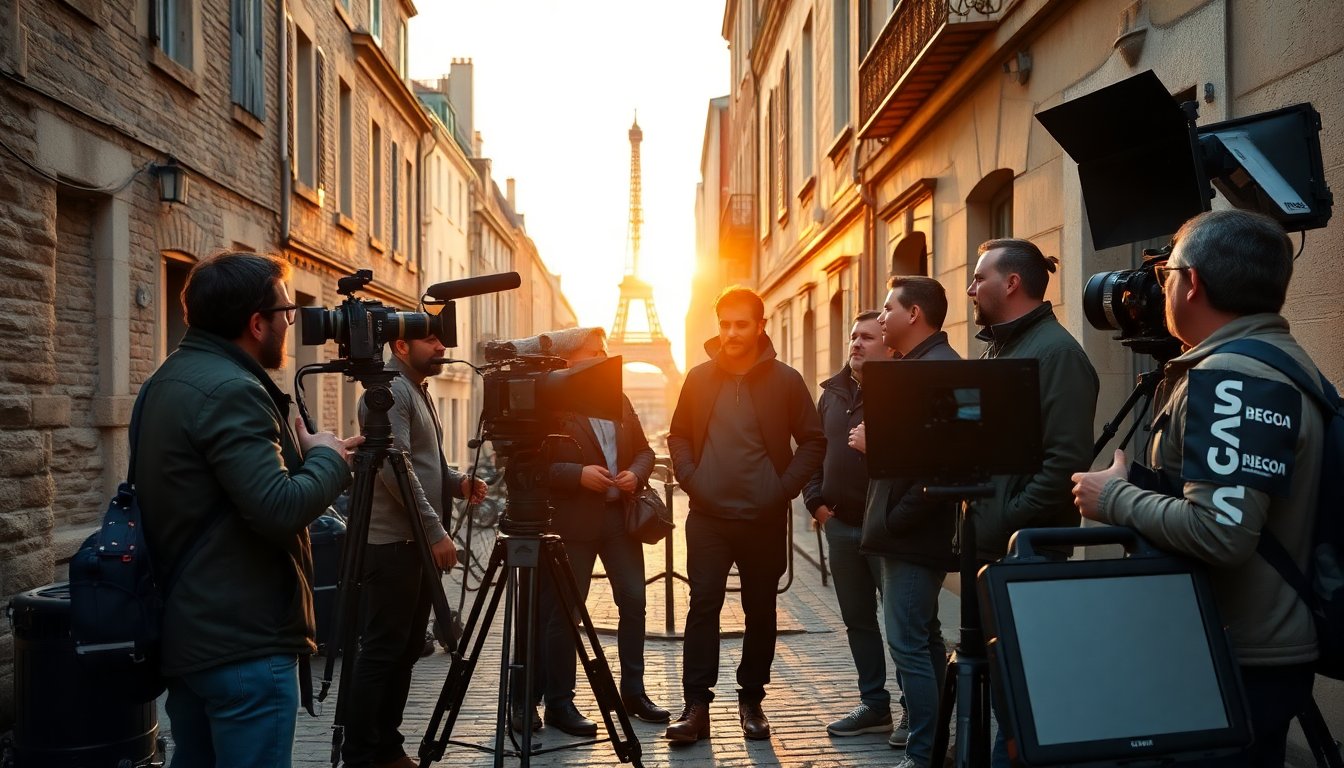Table of Contents
The landscape of cinema is evolving, with France emerging as a key hub for filmmakers worldwide. The recent success of Jafar Panahi’s It Was Just an Accident at Cannes and Jim Jarmusch’s Father Mother Sister Brother at Venice underscores this trend. These films highlight France’s vibrant film ecosystem, which not only nurtures local talent but also embraces international creators.
The allure of French cinema for global directors
French producer Charles Gillibert articulates a compelling truth: “You can build electric cars with China, but when it comes to filmmaking, France is where the magic happens.” This statement underscores the universal framework that France has developed, enabling filmmakers from various backgrounds to flourish. Gillibert, who heads Les Films du Losange and has collaborated on projects like Bi Gan’s Resurrection, highlights the interconnectedness of the French film industry with a self-sustaining ecosystem that fosters creativity. This is achieved through rigorous investment obligations and a vibrant array of film festivals.
How collaborations shape cinematic narratives
Jim Jarmusch’s recent projects exemplify the power of collaboration in filmmaking. In search of a European partner for his international story, he turned to Gillibert’s CG Cinema for support. This partnership was crucial in addressing the film’s creative elements, legal requirements, and financing, particularly utilizing France’s international tax incentives. A strategic decision to relocate part of the filming from London to Dublin enhanced the narrative, enabling Jarmusch’s team of trusted collaborators and French technicians to work together seamlessly across borders.
Gillibert emphasizes the importance of this collaboration, stating, “It illustrates the value of our work and the connections we create. Jarmusch’s ongoing interest in collaborating in France is both fortunate and exciting.” This perspective resonates throughout the industry, as many international films are now co-produced with French companies, showcasing a strong partnership that benefits filmmakers globally.
A self-reinforcing ecosystem for filmmakers
The landscape of international cinema features a significant surge in French co-productions, with 27 films competing for the international feature film Oscar. This statistic underscores the appeal of France as a hub for global talent. A prime example is Joachim Trier’s Sentimental Value, which won the Grand Prize at Cannes. The film narrates the journey of a Norwegian filmmaker who rediscovers his creativity at a French film festival, with pivotal scenes filmed at the Deauville Festival.
The cycle of success in French cinema
Fionnuala Jamison, managing director of MK2 Films, describes the process as a virtuous cycle. Exposure at the Cannes Film Festival not only boosts French box office sales but also fosters relationships between international filmmakers and local distributors. These collaborations unlock funding opportunities and broadcaster pre-buys that align with the preferences of festival-goers, creating a dynamic ecosystem that supports diverse voices.
According to Jamison, “What premieres at Cannes influences what resonates with French audiences and, ultimately, what funding bodies choose to support. It’s a complex interplay, but at its core is the French audience’s longstanding tradition of openness to new ideas and narratives. Certain films simply resonate here.”
Exploring struggle and resilience in jafar panahi’s films
Jafar Panahi’s filmmaking journey highlights the difficulties encountered by numerous artists. Enduring significant oppression under the Iranian regime, Panahi’s latest film, It Was Just an Accident, exemplifies his resilience and creativity. This work, which debuted at Cannes, provides a gripping examination of revenge and uncertainty, sharply critiquing the Iranian government while addressing personal trauma.
The narrative follows Vahid, portrayed by Vahid Mobasseri, who confronts haunting memories of torture from his imprisonment in Iran. The film’s opening scene introduces a tense exploration of morality and vengeance, as Vahid believes he has recognized his tormentor, Eghbal, played by Ebrahim Azizi. The progression of events encapsulates the struggle between past injuries and the pursuit of closure, offering a profound commentary on the human experience.
Revolutionary storytelling amid adversity
Despite the film’s dark themes, Jafar Panahi’s ability to infuse humor adds depth to the narrative, echoing the mastery of suspense often attributed to Alfred Hitchcock. In the climactic moments, characters grapple with their choices, prompting viewers to reflect on the moral complexities of retribution. Panahi’s artistry shines as he weaves intricate plotlines that resonate with universal themes of justice and forgiveness.
The French film industry remains a vibrant center for creative collaboration. By fostering an environment that welcomes international filmmakers and promotes diverse stories, France enriches its cinematic landscape and significantly contributes to the global film narrative.


